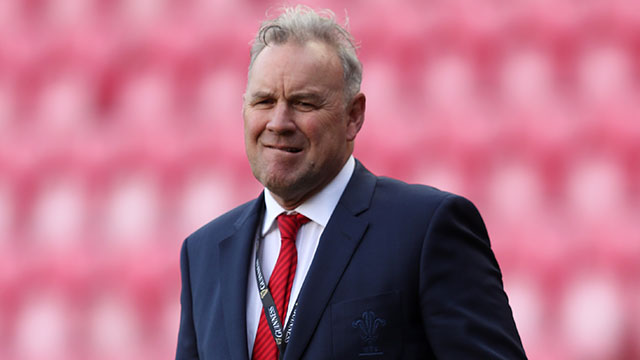Wayne Pivac accepts that the pressure is on Wales ahead of their Autumn Nations Cup campaign following five successive defeats.
Wales go into the competition opener against Ireland on Friday after Byron Hayward’s departure as defence coach, while their last victory came 282 days ago when they beat perennial Six Nations strugglers Italy.
Pivac’s four-year deal as Wales head coach expires following the 2023 World Cup in France, although it is understood to contain a break clause at the halfway point.
“We want to win all the time, but there has been no conversation around my future or the future of any of the coaches depending on these results,” Pivac said.
“We have a plan that we are sticking to and working to.
“Certainly, I am in touch with our CEO (Welsh Rugby Union chief executive Steve Phillips) on a regular basis, and our executives, and they know exactly what we are doing and why we’re doing things.”
Wales have not lost six games on the bounce since 2012, but current form suggests another reversal awaits them in Dublin.
Wales then face Georgia and newly-crowned Six Nations champions England, before concluding the Nations Cup with a play-off fixture on December 5.
Pivac added: “From day one it’s been about submitting a plan through the interview process, it’s about building a side capable of winning a World Cup in 2023.
“We know we are not entirely happy with the results, so from my point of view the pressure comes on because we are humans, very competitive people, and we like to win.
“Like any team, we’re going out there to win on every occasion. But we’ve got to focus on the big goal, which is 2023, and making sure we’re making progress.
“When we review any tournament, we look at the results, the impact of them and whether we are achieving the other goals set outside the results – that’s the development of rugby players.
“As we say to them when we come in, we want each of them to leave at the end of the campaign in better shape than they arrive – whether that’s mentally stronger, in terms of strength and conditioning, or technical and tactical appreciation of the game.
“There are a number of things we are looking at, not just the scoreboard and results, when it comes to this autumn series.”
Wales have conceded 16 tries during their current losing run, which inevitably put Hayward under the microscope and drew reflections in many quarters on the great success enjoyed over a long period with Wales by his predecessor Shaun Edwards.
Edwards is now helping to drive a stirring French renaissance as part of Fabien Galthie’s national team coaching staff, and Pivac underlined that considerable efforts were made to keep him in Wales.
“It is well documented that Shaun announced he was going to Wigan,” Pivac said.
“I had been in talks with Shaun, and then it was made clear at the end of the (2019) Six Nations, after the Ireland game, that he was back on the market.
“We sat down and we spoke. We were very keen to keep Shaun, and he was very keen to work in a two-coach system with Byron working with him.
“Those discussions were had, and we thought we had Shaun, but at the last minute we weren’t successful. We tried hard, and I don’t think there was anything else we could have done.”


